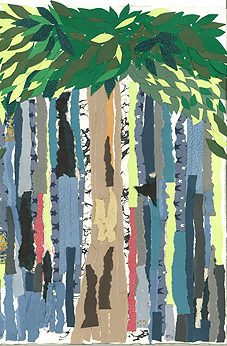Modernity and Public Sphere in Vernacular
Purushottam Agrawal
Along with interrogating this “shared representation of distinction,“ we also need to examine the idea of one-way diffusion of modernity (from west to the rest of the globe) and such an idea needs to be replaced by a dia- logue-oriented concept of the dynamics of modernity. Admittedly, as noted by D. A. Washbrook, “the application of ’dialogics’ is in its early stage,“ but he notes: In religion, philosophy and even history too, much which ’Europeans’ (and the critical theorists of their discourse) have held to reflect a distinctive racial or cultural ’genius’ no longer appears so singular: other cultures had concepts (fore) shadowing the ’individual’, ’nation’ and ’religion’ as well. In shattering Europe’s monolithic conceits, dialogics may come to offer a more far-reaching critique of European world-centrality and dominance than discourse theory ever managed.8 As a matter of fact, even the history of colonial consolidation is also the history of a dialogue of sorts between indigenous and colonial differentials of power. The ideas, practices, values, spaces and concepts similar (as distinct from ’same’) to those of European Enlightenment were evolving in non-European societies as well. A dialogic concept of the evolution of modernity as opposed to the diffusion-based or derivative one is extremely helpful in charting the trajectories of the ’modern’ concepts, ideas and prac- tices in various societies. It is also crucial to evolve a really shared sense of universal human values. Keeping this in mind, I have been trying to explore the process or concept of “(fore-) shadowing“ Public Sphere. Can we really think of the Public Sphere of Bhakti (roughly translated as devotion)? When I answered this question in the affirmative in my study of Kabir’s poetry and times9 (Akath Kahani Prem ki: Kabir ki Kavita aur un ka Samay ) and employed the category of Public Sphere to better understand the dynamics of Bhakti sensibility, its social implications and fall-outs, there was some enthusiasm as well as some skepticism. I was asked: is not the Habermasian category of Public Sphere specific to the historical context of Europe? Can we really employ a “foreign“ category of analysis even while arguing for the existence of an indigenous, vernacular or alternative modernity? It is interesting to note that this objection against the use of “-etic“ categories, and insistence on using only the “-emic“ notions to analyze the indigenous phenomena comes not only from the nativist and post-modernist quarters but also from certain Marxist quarters as well, forgetting their own “-etic“ status and at the same time reminding us of the validity of Mbembe’s observation cited earlier. Obviously the objection is not confined to Public Sphere alone. Velchuru Narayana Rao and Sanjay Subrahmmanyam note: …it is claimed often enough now that no fit whatsoever existed between these and other ’-etic’ categories of the humanities and social sciences ( with their uniquely Western origins and genealogy) and the highly varied ’-emic’ notions that may be found in different locales and times in the world of the past: a claim that is a source of anxiety for some, a source of indifference for others, and a ground for rejoicing for still others who see a positive value in ’incommensurability’, which they perhaps view as akin to a (necessarily virtuous) claim for species diversity.10 Pages: 1 2 3 4 5 6 7 8 |
Essays in this Forum
Rethinking the Global South
by Mukoma Wa Ngugi From Indian Literature to World Literature: A Conversation with Satya P. Mohanty by Rashmi Dube Bhatnagar and Rajender Kaur Asia in My Life by Ngugi wa Thiong'o The Global South and Cultural Struggles: On the Afro-Asian People’s Solidarity Organization by Duncan Mceachern Yoon The Fault Lines of Hindi and Urdu by Sanjay Kumar Reframing Colonialism and Modernity: An Endeavour through Sociology and Literature by Gurminder K. Bhambra Varieties of Cultural Chauvinism and the Relevance of Comparative Studies by Tilottoma Misra Literature to Combat Cultural Chauvinism: A Response by Shivani Jha Is There an Indian Way of Thinking about Comparative Literature? by E. V. Ramakrishnan Modernity and Public Sphere in Vernacular by Purushottam Agrawal West Indian Writers and Cultural Chauvinism by Jerome Teelucksingh Oral Knowledge in Berber Women’s Expressions of the Sacred by Fatima Sadiki |
